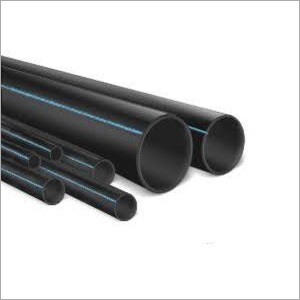Comprehending the Key Advantages of HDPE Pipeline for Water and Wastewater Management
The use of HDPE pipeline in water and wastewater monitoring presents various advantages that merit factor to consider. Its remarkable sturdiness and lengthy life-span make it a favored option for lots of projects. Additionally, the product's resistance to deterioration and chemical damage enhances its integrity in numerous atmospheres. However, the benefits prolong beyond just longevity and resistance. Exploring its cost-effectiveness and environmental influence discloses also much more compelling factors for its prevalent adoption in modern-day infrastructure
Outstanding Resilience and Longevity

HDPE pipeline stands apart for its remarkable sturdiness and durability, making it a favored option in water administration systems. Built from high-density polyethylene, these pipelines can withstand considerable stress and anxiety, guaranteeing reputable performance in time. Their durable nature enables them to endure severe ecological problems, including temperature fluctuations and soil motions, which can trigger other materials to fall short.
The life expectancy of HDPE pipelines commonly surpasses 50 years, supplying a cost-effective option for municipalities and sectors alike. Additionally, the product's light-weight buildings simplify installation, reducing labor prices and durations. This sturdiness minimizes the requirement for frequent fixings or replacements, additionally enhancing its financial charm.
In water administration applications, the dependability of HDPE pipes indicates less interruptions and boosted solution connection, making them important to lasting facilities advancement. The combination of longevity and durability solidifies HDPE's duty as a foundation in effective water monitoring services.

Resistance to Deterioration and Chemical Damages
While numerous products yield to corrosion and chemical damages with time, HDPE pipelines show amazing resistance, making them excellent for numerous water administration applications. This resilience comes from the molecular structure of high-density polyethylene, which is naturally non-reactive and does not rust like steels or degrade from exposure to rough chemicals. Because of this, HDPE is highly reliable in atmospheres with hostile materials, such as wastewater systems that might consist of acids, bases, and organic solvents.
In addition, HDPE pipes can stand up to ecological factors such as soil acidity and saline problems, even more boosting their viability for varied applications (Midland TX HDPE Pipe Fittings in Stock). Their ability to maintain architectural stability gradually minimizes the threat of leaks and failures, which is essential in ensuring the security and integrity of water circulation and wastewater administration systems. The resistance to rust and chemical damages significantly contributes to the overall efficiency and long life of HDPE piping remedies.
Cost-Effectiveness and Economic Benefits
When considering the economic implications of water administration systems, the cost-effectiveness of HDPE pipes comes to be obvious. These pipelines offer lower installment and upkeep prices contrasted to conventional materials like metal or concrete. Their lightweight nature simplifies transportation and installation, leading to decreased labor expenditures. In addition, HDPE pipelines exhibit a lengthy life expectancy, commonly surpassing half a century, which converts to less replacements and lasting cost savings.
The resistance of HDPE to corrosion and chemical damages reduces the need for pricey repair services and replacements. The pipelines likewise support efficient water flow, minimizing energy costs associated with pumping systems. By minimizing leaks and water loss, HDPE pipes contribute to substantial economic advantages for municipalities and sectors alike. Overall, the initial financial investment in HDPE piping can produce significant monetary returns over the lifespan of the water management system, making it a prudent selection for lasting facilities check here development.
Environmental Sustainability and Minimized Impact

Convenience and Flexibility in Installment
Because of their distinct residential or commercial properties, HDPE pipelines supply impressive versatility and adaptability in installment, making them appropriate for a vast array of applications. Their lightweight nature permits easier handling and transportation, decreasing labor prices and installment time. HDPE pipes can be curved and formed to fit different surfaces and project demands, which is particularly valuable in challenging atmospheres.
In addition, their resistance to corrosion and chemical damages permits setup in varied settings without the demand for specialized safety coverings. The capability to fuse joints develops a continuous, leak-free system, improving the general honesty and reliability of the installment. HDPE's adaptability also accommodates ground movement, minimizing the threat of damages in areas prone to changing dirt. In general, these attributes make HDPE pipelines not just functional yet also a preferred choice for water and wastewater administration systems.
Often Asked Inquiries
Exactly How Does HDPE Pipeline Compare to PVC in Water Administration Applications?
HDPE pipeline uses premium adaptability, resistance to deterioration, and resilience compared to PVC. Its lighter weight helps with much easier installment, while its lengthy life-span minimizes substitute costs, making HDPE a preferred option in water administration applications.
What Is the Life Expectancy of HDPE Pipes Under Common Conditions?
Under common conditions, HDPE pipelines can have a lifespan varying from 50 to 100 years. Their resilience and resistance to corrosion add to their long-term efficiency in numerous applications, making them a reputable selection for facilities.
Are HDPE Water Lines Recyclable After Their Life Span?
Yes, HDPE pipes are recyclable after their life span. hdpe pipe in stock Midland TX. They can be processed and repurposed into brand-new products, significantly decreasing environmental impact and advertising sustainability within the market, making them an eco-friendly choice for piping solutions
What Is the Installation Refine for HDPE Water Lines?
The setup process for HDPE pipelines includes site preparation, trenching, pipeline fusion or mechanical joining, backfilling, and stress screening. Appropriate techniques assure a sturdy and effective system for delivering water and wastewater effectively.
Can HDPE Pipes Be Utilized for Both Safe And Clean and Non-Potable Water Equipments?
Yes, HDPE pipelines can be used for both drinkable and non-potable water supply. Their versatility, resilience, and resistance to deterioration make them appropriate for various applications, guaranteeing secure and effective transport of water in different contexts.